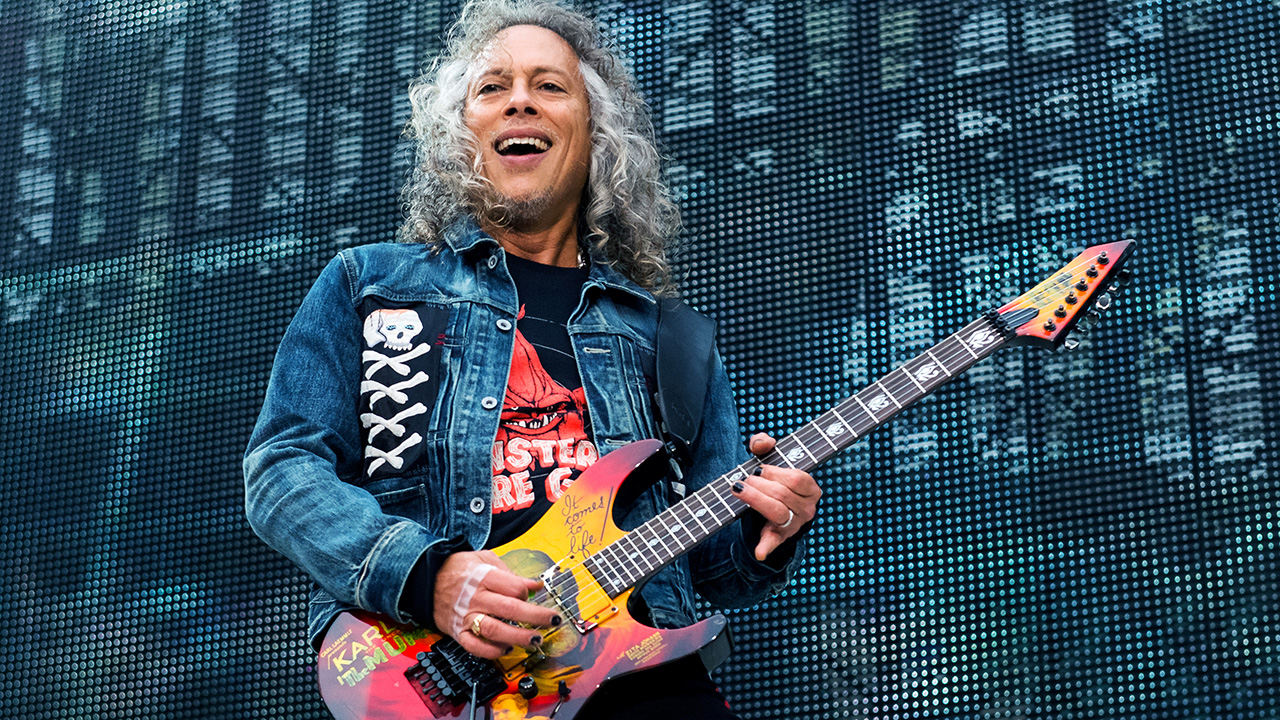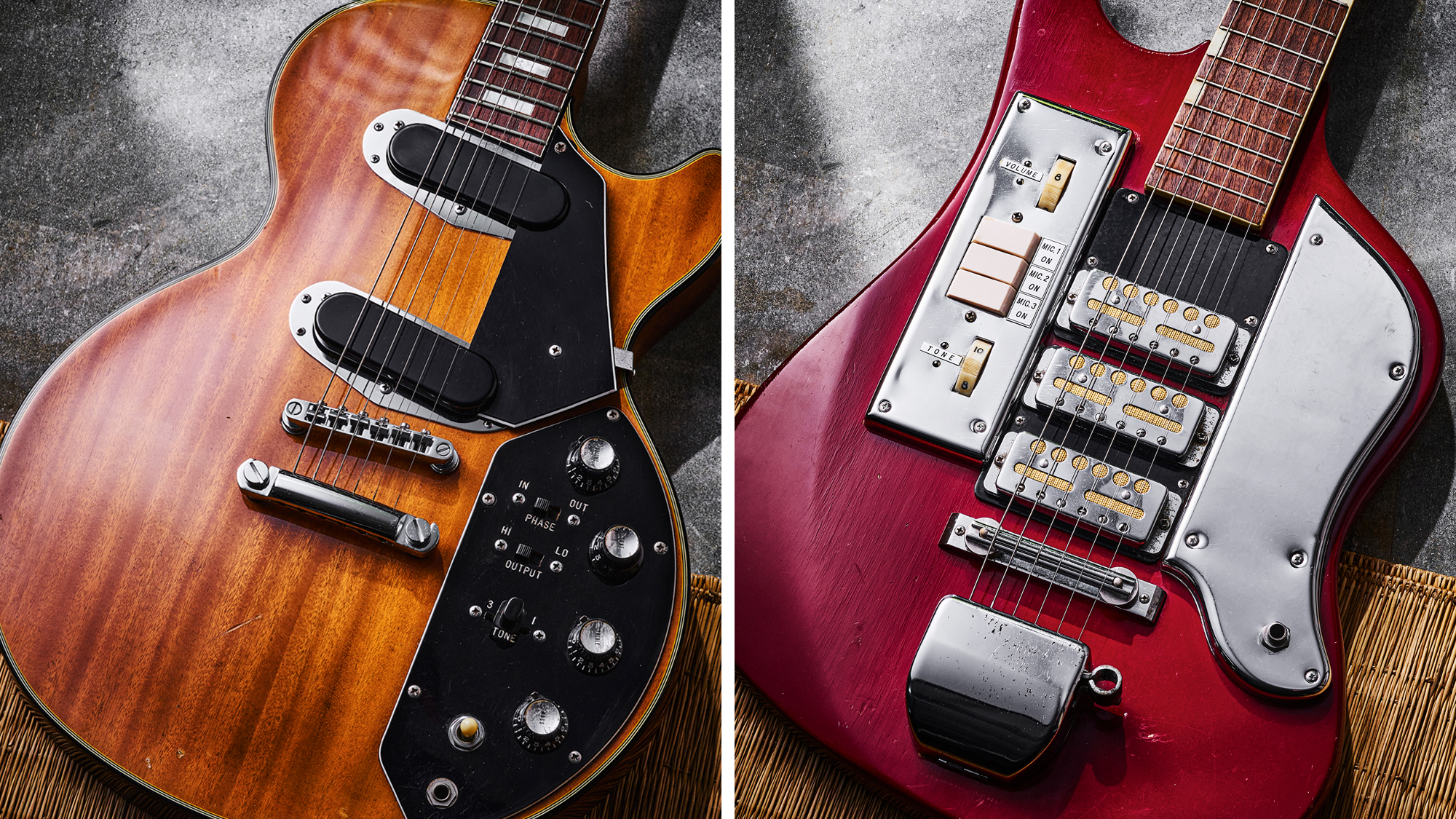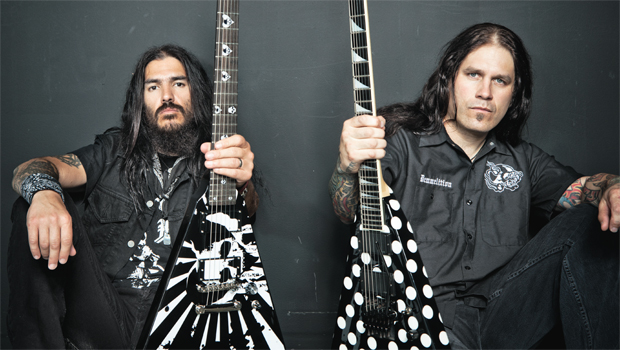
Here's a Dear Guitar Hero feature with guitarists Robb Flynn and Phil Demmel of Machine Head. All the questions were provided by Guitar World readers.
Q: Who is the weirdest musician you have ever met? -- Jenna Swift
ROBB FLYNN: Dimebag Darrell was a weirdo, in the best way possible! When you were around him, you'd get sucked up into this tornado of lunacy that would take you down these ridiculous paths where you would usually have the best night of your life. He would be like, "We're all gonna paint our beards pink!" And I'd be like, "What?" We toured with Pantera twice, and he was by far one of the greatest characters that I've ever met in my life.
Q: Your last record, The Blackening, was amazing. Did you feel any extra pressure to top it on your new album, Unto the Locust? -- Billy Frank
PHIL DEMMEL: We always want to make a better record than the previous one or do something different, and that was no different with this record. We really wanted to push ourselves, performance-wise, more than we had in the past and incorporate classical influences and a lot more singing. So there's always a little bit of pressure to do better.
Q: "Who We Are" [from Unto the Locust] has children singing on it. It's really creepy. What inspired that section, and where did you find the kids? -- Geoff Kritz
FLYNN: They're my two sons, Phil's son, and my engineer Juan [Urteaga]'s two girls. When I wrote that section, I was playing that intro part on an acoustic guitar and singing those lyrics. My kids were wrestling downstairs -- I have a 4-year-old and a 6-year-old -- and they started singing a song just out of nowhere. When I heard it, I thought, Wow, it would be so cool to have this song start off with kids singing.
Get The Pick Newsletter
All the latest guitar news, interviews, lessons, reviews, deals and more, direct to your inbox!
Q: How did you get that super-high-gain guitar sound on Unto the Locust and keep the notes so clear? -- Kevin Williams
FLYNN: I have a [Peavey] 5150 amp that I've used forever. I've had him for 14 years and call him "Bubba." I literally have him in a high-security storage area. He comes out to record and then he goes right back in. He never goes on tour. Bubba hasn't been modified at all. It's just one of those magical heads that you come across in your life that stands head and shoulders above the rest. I use that and a Marshall. There is a lot less gain on it than you'd think, and that's part of how we get the clarity and picking definition. A lot of it has to do with my right hand and just being cognizant of my playing. I play all the rhythms, so that really makes it tighter overall. And Phil will come in and do overdubs and leads.
Q: You often use natural harmonics to accent riffs, like on "Davidian" from Burn My Eyes and "This Is the End" from Unto the Locust. How did that technique find its way into your style? -- Jon Richards
FLYNN: When I first started playing guitar, I was really influenced by bands like Black Sabbath, Celtic Frost and D.R.I. Those bands would sometimes do these stops in their songs, where they'd let their guitars feed back. At the time, I was learning how to play on a $45 guitar my dad had rented that came with a little 6-inch practice amp. I didn't even know what feedback was.
At some point, I stumbled on hitting the harmonic and I thought that was feedback. So when the feedback part came along on a song like Celtic Frost's "Morbid Tales," I would just hit the harmonic. Over time I realized I had learned it wrong. But as I became a songwriter, I still thought it sounded cool, so I started bringing that into my style. At this point it has become the trademark sound of Machine Head. It's just one of those magical accidents that happens as you're learning, and you just roll with it.
Q: Robb, what piece of gear is the most crucial to your sound and why? -- Carter Burke
FLYNN: The Electro-Harmonix Electric Mistress [flanger], which is a big old hunking, 9-inch-wide pedal. It's one of the stomp boxes that I use religiously on every album. I use that thing so much, I can't even tell you. It's one of the best pedals ever invented. Listen to the opening riff of "Imperium" [from 2003's Through the Ashes of Empires]; that effect is on both the clean part and the heavy part.
You can basically hear it in any clean tone on any of our records, like at the beginning of "Aesthetics of Hate" [on 2007's The Blackening]. The way that it flanges is unlike any other flange I've found. It's got this watery, glassy tone to it that makes almost anything sound better. I've actually gotta be careful I don't overuse it, because I like it so much.
Q: In your opinion, what is the greatest thrash-metal record of all time? -- Johnny D
DEMMEL: Of course, there's Slayer’s Reign in Blood. I was brought up on Slayer; they’re the first thrash band I ever saw live. Metallica’s Ride the Lightning is a great thrash album too. It’s probably my favorite Metallica record. And Exodus’ Bonded by Blood is right up there. So I’m gonna do a three-way tie -- a three-headed crown of thrash! [laughs]
FLYNN: The greatest thrash-metal record to me would be Bonded by Blood. Growing up in the Bay Area, Exodus were the craziest of all the thrash bands, particularly on that album. Their singer, Paul Baloff, was fucking bat-shit crazy, like a fucking psychopath. When they played shows, he just had this incredible knack for winding up the crowd into a bloodthirsty frenzy. I mean, I’ve never seen anything like it before or since. Exodus shows back then were the most crazy and violent shows that there were, period.
That record was the soundtrack to my life for years. The first solo that I ever learned how to play was Gary Holt’s lead on the song “Bonded by Blood.” That record just had such a huge impact on me. Everything about it impacted me: the riffs, the little bit of melody, the attitude. They should have been in the Big Four. They were there, for real, at the beginning.
Q: Phil, you’ve talked about how Dimebag Darrell inspired you. What is your favorite Dime story? -- Brandon Wagemann
DEMMEL: I met Dimebag once at the Download Festival in the U.K. Damageplan were supposed to play right before us. They rolled up, and they’d been on a two-day drinking binge. Dime opened the door to their van and just freaked when he saw us, because he hadn’t seen Machine Head since I joined the band. Through the Ashes of Empires had just come out, and Dime came up to me. He’s all, “You brought the shred into Machine Head. I love your work, brother.”
It was amazing hearing that from him. Then I watched him do four more shots before they played, warm up a little bit on Robb’s guitar, and go up there and just absolutely kill it live. It was just flawless. That was a couple of months before he passed away. I’m happy I got to share that moment with him and witness him, just to be able to testify that the man was exactly everything he was billed to be.
Q: Phil, why does one of your instruments have polka dots, like Randy Rhoads’ guitar? -- Marilyn McCracken
DEMMEL: I started playing maybe a year before [Ozzy Osbourne’s 1980 solo debut] Blizzard of Ozz came out. My first concert was a festival called Day on the Green in 1981, which Ozzy, Loverboy, Pat Travers, Blue Öyster Cult and Heart headlined. Ozzy went on at 10 in the morning and we got there at, like, 6 to get up front. I remember watching Randy Rhoads play. I was so impressed by how he performed with such passion. He felt every note that he was playing. He believed in everything that he was doing.
His performance made me admire not only his playing but also the way that he was selling it and the way that he was feeling it. He was such an innovative metal guitar player. You really remember his leads; you can hum his solos. I wanted to incorporate that into my lead playing, especially on Unto the Locust. He is a legend, and he was taken too soon. So on my signature guitar, I use [Rhoads’ signature polka-dot] paint job to pay tribute. I have another one that pays tribute to [guitarist] Michael Schenker, ’cause they’re my top two dudes.
Photo: Travis Shinn
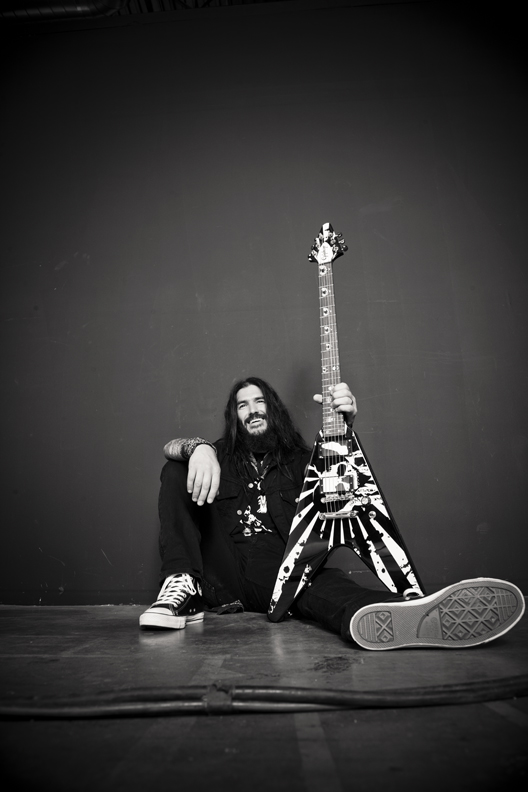
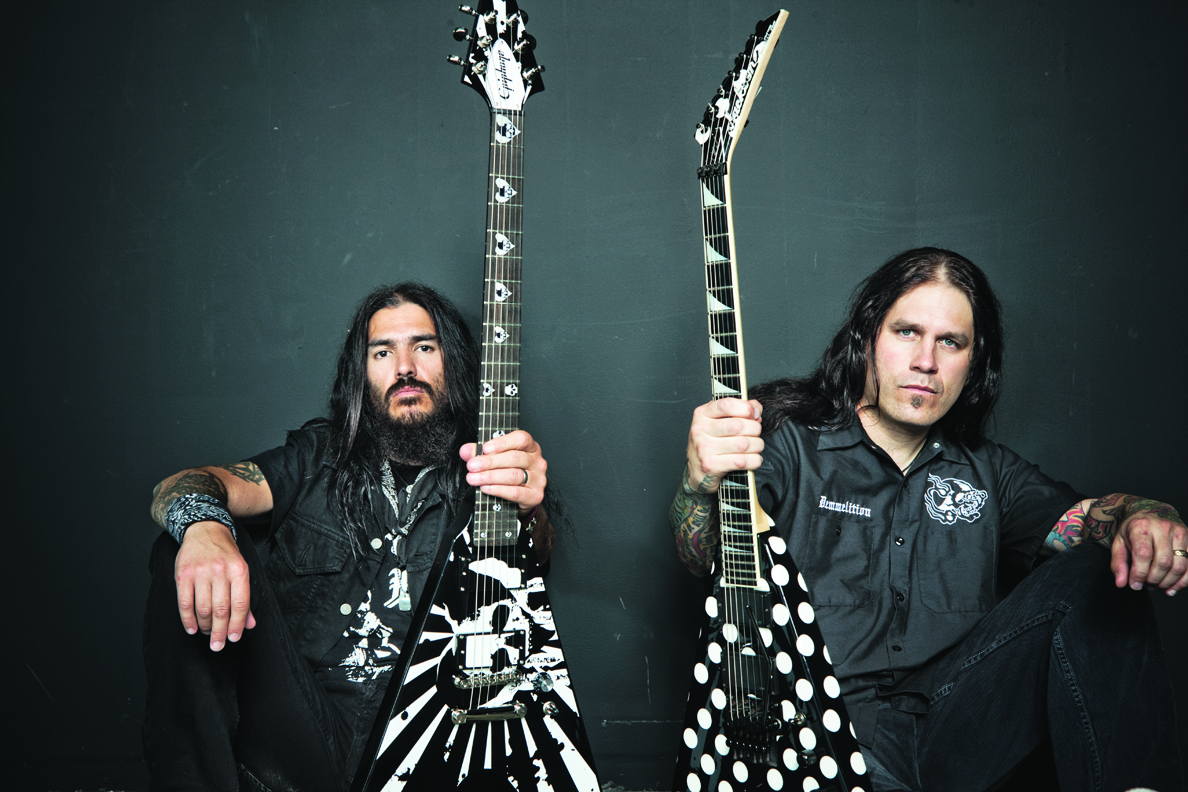
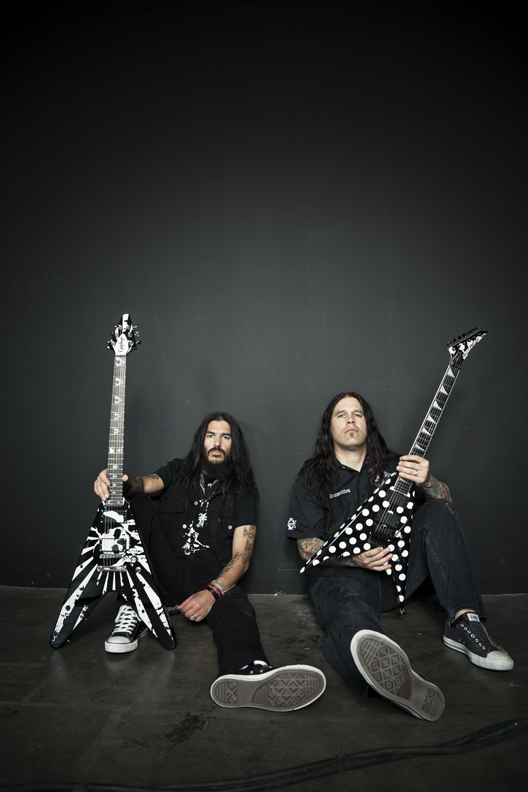
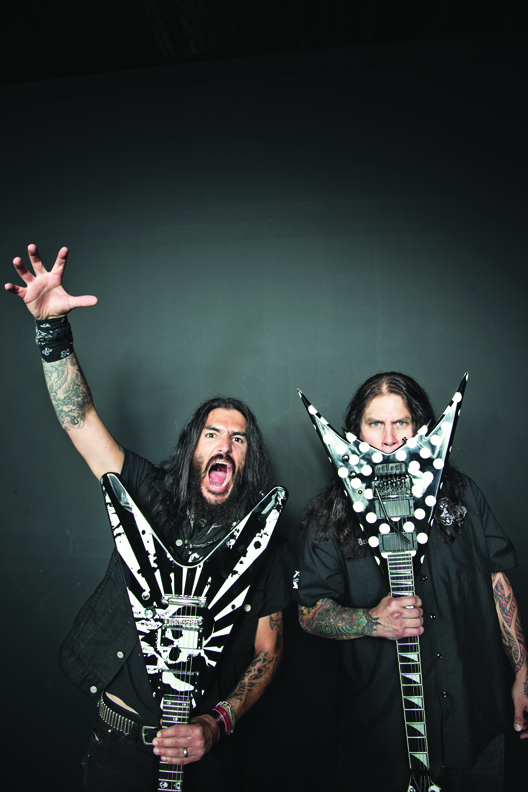
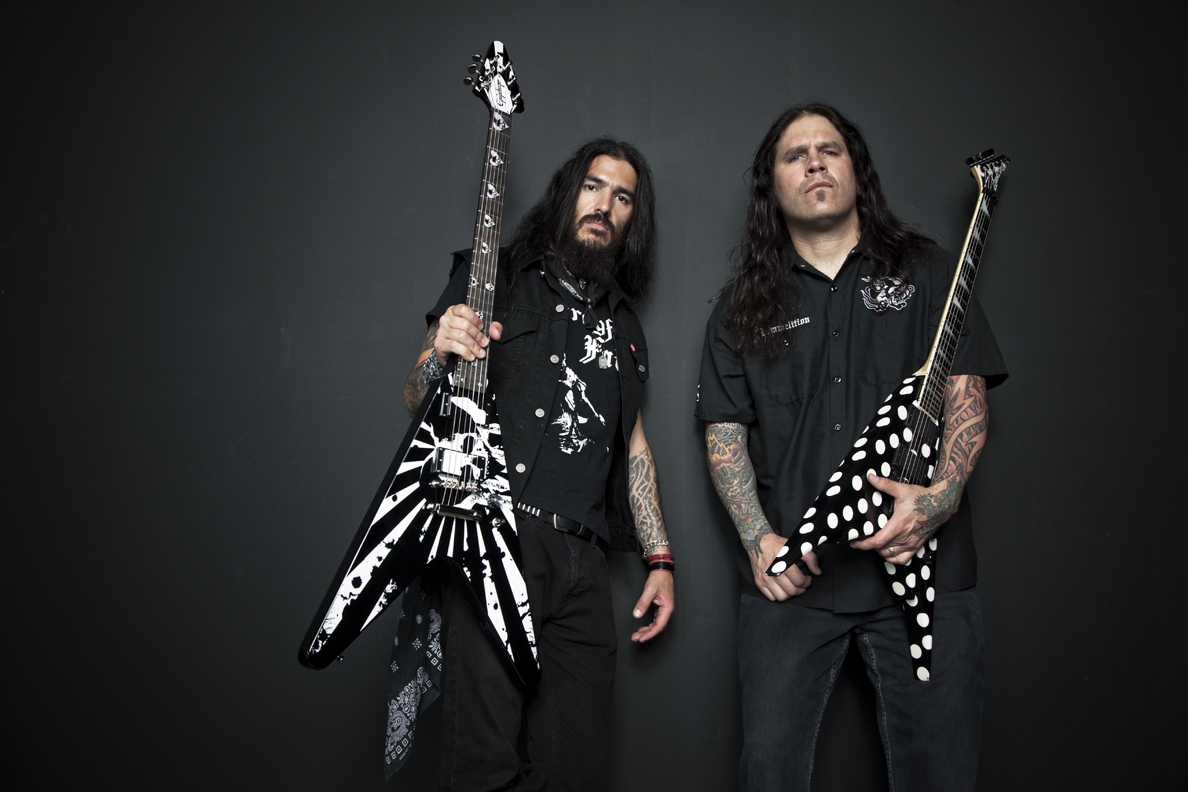
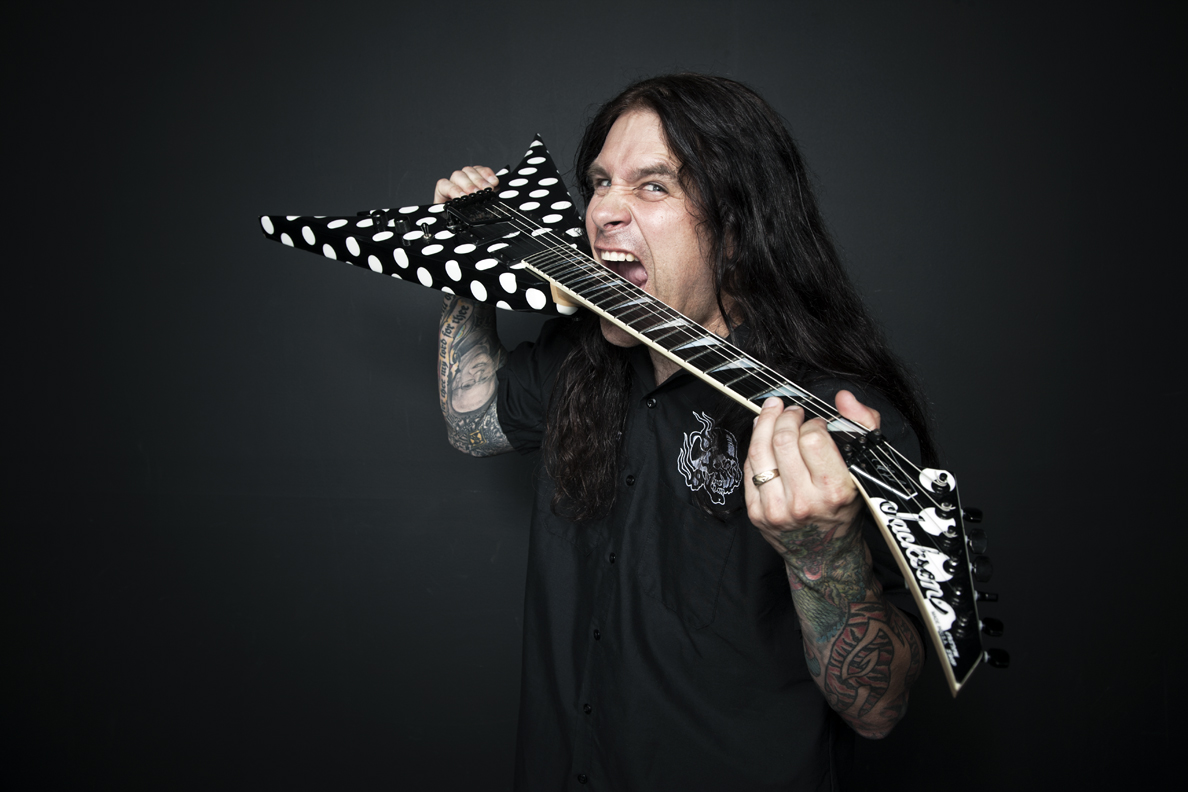
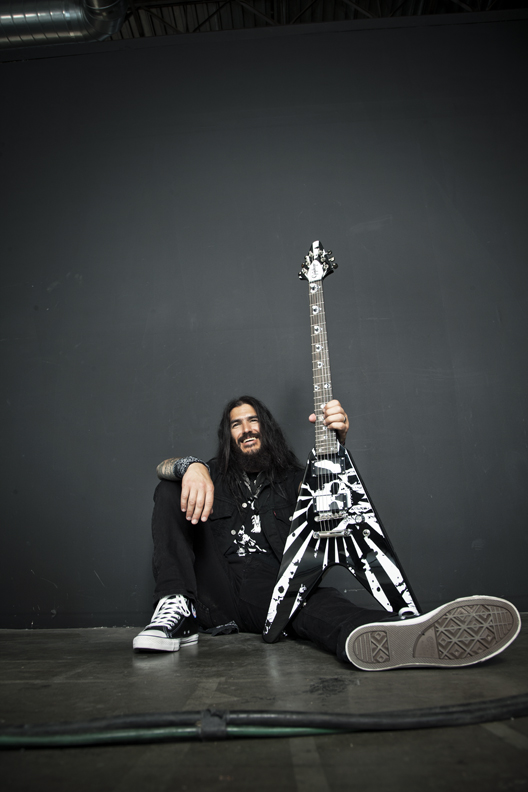
“His songs are timeless, you can’t tell if they were written in the 1400s or now”: Michael Hurley, guitarist and singer/songwriter known as the ‘Godfather of freak folk,’ dies at 83
“The future is pretty bright”: Norman's Rare Guitars has unearthed another future blues great – and the 15-year-old guitar star has already jammed with Michael Lemmo








